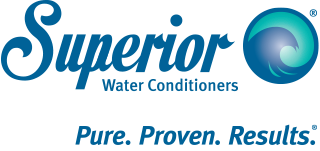In the food industry, water quality is a prime concern. Apart from its use in cooking, major food service equipment, such as steamers, dishwashers, and boilers, need water to function. It is imperative, therefore, that the water that enters and passes through them won’t hamper their function.
Unfortunately, about 85% of the country is run on hard water — including commercial machinery and equipment. This type of water contains trace minerals that build up in pipes and appliances, damaging them and impeding their respective functions in the long run.
Business and homeowners should invest in water conditioners, which treat the water to prevent minerals from forming a hard scale on surfaces and pipe linings. Allow us to show how water conditioners prevent inefficiencies in your food service equipment.
Preventing Limescale Build-up
The primary advantage of having a water conditioning system is that it prevents limescale build-up. These chalky deposits of calcium carbonate restrict water flow in pipes and appliances. If the equipment has very narrow pipes, they will operate less efficiently and clog over time.
Some tanks and boilers can lose a little bit of their capacity due to prolonged exposure to hard water, too — a few millimeters of limescale deposit reduces the heater’s ability to warm the water, in fact.
Installing a water conditioner helps ensure that water flows freely through the pipes. This helps foodservice equipment run efficiency.
Maintaining the Right Temperatures and Preserving Food Quality
Limescale build-up can disrupt the temperatures in food service equipment, hindering heat transfer, prolonging cooking time, and wasting energy. It prevents steamers and coffeemakers from heating up their contents quickly, for instance. In cases where temperature is critical to sanitation, limescale build-up can compromise food safety.
Limescale has a porous surface conducive to bacteria growth, which also jeopardizes food safety and affects food quality (e.g., it can give ice created from ice makers an unpleasant taste).
Because water conditioners inhibit limescale build-up, they prevent these problems and the inefficiencies that come along with them. By preventing limescale deposits from forming, temperatures won’t be disrupted, and food quality won’t be compromised.
Keeping Dishes and Silverware Clean
Hard water leaves residue from trace minerals like calcium and magnesium on dishes, glasses, and utensils. Even if this is not directly harmful to one’s health, it is still unsightly and unprofessional to serve stained tableware to your guests; nobody wants to eat with spoons and bowls covered with a white film.
Manually removing these deposits is a time-consuming task. If you use dishwashers often, it is in your best interests to install a water conditioner. Since it prevents limescale build-up, it keeps your tableware clean and ready for use. Additionally, water conditioners reduce the surface tension of water, further decreasing spotting on dishes and silverware.
If you want to make sure that your food service equipment runs efficiently, let Superior Water Conditioners help. As one of the leading water treatment companies in Fort Wayne, we offer top-of-the-line water conditioners that treat water to make it suitable for food service equipment use.
Leave it to our experts to find the right water conditioning solution for you. This way, we’ll help prevent inefficiencies in your kitchen or facility.
Call us at 260-456-3596 or fill out our form today.
